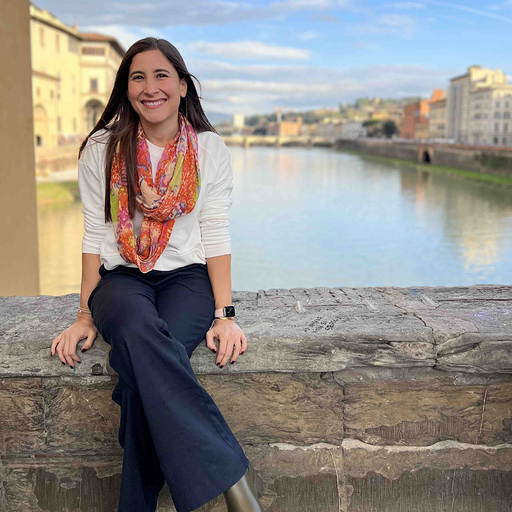Why You Might Experience Difficulty Hearing with Background Noise
Do you find yourself struggling to hear conversations in loud environments? Check out this article to find out more about this issue!

Do you find yourself struggling to hear conversations in loud environments? Constantly asking people to repeat themselves more than once? Understanding conversations in loud environments can become tricky, whether at a busy restaurant or a loud event.
Struggling to hear in these noisy situations might be more than just a minor annoyance; it could be an early sign that your hearing is not as good as it used to be.
Why Can’t You Hear People With Background Noise?

Catching specific speech sounds is easier in quiet places because they don’t have to compete with other noises. However, in loud settings, the primary speech sound mixes with additional background sounds, creating a challenge.
When this occurs, our brains organize and prioritize these sounds, focusing on the main speech while disregarding the rest, known as secondary sounds.
People with hearing loss often struggle to distinguish background noise from speech due to a reduced ability of their auditory system to differentiate between different sounds. In individuals with hearing loss, the hair cells in the inner ear, responsible for detecting and transmitting sound signals to the brain, may be damaged or less sensitive. This makes it difficult to pick up subtle differences in sound frequencies. As a result, background noise becomes more intrusive and can interfere with their ability to understand conversations.
For this reason, experiencing difficulty hearing with background noise is an early sign of hearing loss or a symptom of an auditory processing disorder and a sign to visit an audiologist.
Hearing Loss vs. Auditory Processing Disorder (APD)
Hearing loss and Auditory Processing Disorder (APD) are separate conditions that involve difficulties with auditory perception, affecting different aspects of the auditory system. It can be challenging to differentiate them because they both manifest as difficulties in processing auditory information, and the symptoms may overlap.
Hearing loss reduces the ability to detect or perceive sounds at various frequencies. It can be caused by damage to the outer, middle, or inner ear or by issues with the auditory nerve. Individuals with hearing loss may struggle to hear soft sounds, experience muffled or distorted speech, and have difficulty following conversations, especially in noisy environments.
Several factors, including genetics, environment, and other medical conditions, can cause hearing loss.
Exposure to loud noises
Noise exposure is one of the most common risk factors for hearing loss. Attending loud concerts, working in loud environments, and coming into proximity to loud engines can damage the hairs in the inner ear, potentially leading to hearing loss, especially without noise protection, such as noise-cancelling ear plugs.
Age-related hearing loss
Hearing ability naturally declines with age, often more noticeable around the age of 60. The degeneration of hair cells and certain medical conditions and medications are significant factors in the development of hearing loss.
Damage and Obstructions
In some cases, foreign objects causing obstructions in the ear canal can lead to infections and temporary hearing loss.
On the other hand, Auditory Processing Disorder (APD) refers to difficulties in processing and interpreting auditory information by the central auditory nervous system and brain. The ears may function normally, but the brain has trouble making sense of the information it receives.
People with APD may have trouble understanding speech, especially in challenging listening environments. They might struggle with following instructions, distinguishing between similar sounds, and processing rapid speech.
How an Audiologist Can Help
The sooner you catch signs of hearing loss or APD, the sooner you should visit an audiologist. An audiologist can play a crucial role in diagnosing, addressing, and managing your condition.
From formal hearing assessments to personalized recommendations, audiologists can offer guidance on communication strategies, assistive listening devices and new technologies, such as the Nagish app, that can improve your ability to engage in conversations and navigate various listening environments.
The Role of Assistive Technology
It's common for people experiencing early signs of hearing loss to withdraw from their social life due to feelings of isolation or fatigue from struggling to communicate in noisy settings. However, with advances in innovative accessibility technologies like the Nagish app and cutting-edge live transcription features, the landscape is changing.
These tools empower individuals to engage with the world around them, breaking down barriers that once hindered social interactions. Integrating such technologies not only enhances accessibility but also fosters a more inclusive and connected society where everyone can participate, communicate, and thrive.
For example, your phone can help you engage in any conversation in real time in person. You can quickly caption anything around you using Nagish. From one-on-one conversations, class lectures, and loudspeaker announcements, Nagish Live transforms sounds around you into written text. It’s a life-enhancing feature that ensures dialogue remains uninterrupted and effortless.
Conclusion
If you’re experiencing difficulty hearing with background noise, it’s advisable to visit an audiologist and practice preventive care to protect your hearing. Using assistive technology and accessibility companionship apps such as Nagish can make a great difference and improve how you communicate with the world in person or via phone calls.





